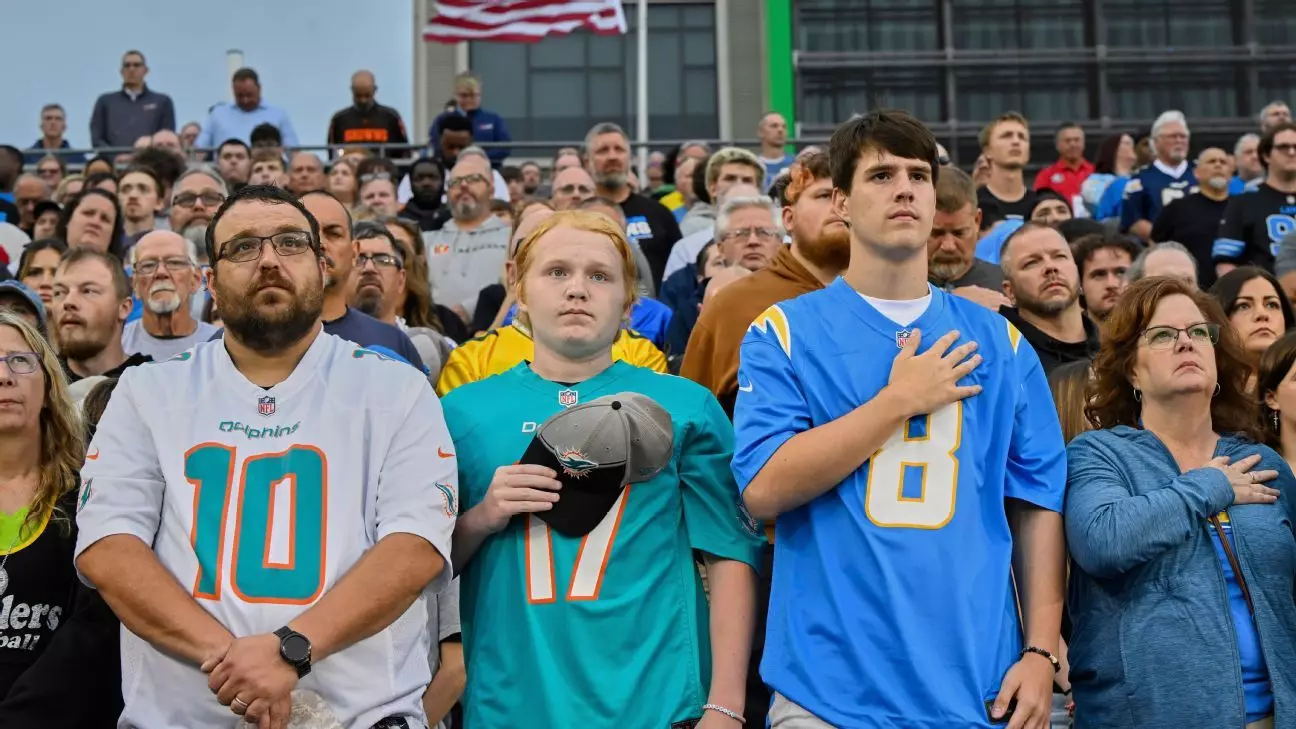The NFL, long celebrated as America’s most popular sports league, now finds itself grappling with a disturbing undercurrent of violence that threatens to tarnish its image. The latest tumult, marked by a tragic shooting targeting league headquarters, shatters the illusion of safety and prestige associated with professional football. While the season’s kickoff proceeded under the usual fanfare, beneath the surface, a stark reality persists: violence and mental health crises are infiltrating spaces meant for celebration and community. This unspeakable act of gun violence underscores a painful truth—our societal obsession with spectacle often masks underlying issues that can erupt violently when left unaddressed.
The NFL’s response, marked by moments of silence and increased security, smells of superficial reassurance rather than genuine resolution. It raises questions about the league’s commitment to addressing the root causes of violence that threaten its players, staff, and fans alike. Commissioner Roger Goodell’s visits to injured employees and attendance at funerals evoke empathy, yet they seem inadequate in confronting a troubling trend that runs deeper than a single incident. The league’s focus on memorializing its icons at the Hall of Fame feels increasingly disconnected from the harsh realities of mental health struggles, systemic exclusion, and societal violence that pervade its very own corridors.
The Perils of Fame and the Myth of Invulnerability
Behind the glitz and glamour of NFL stardom lies a fragile human psyche, often overshadowed by narratives of macho resilience and invulnerability. The shooter, Shane Tamura, reportedly suffered from mental illness and harbored grievances rooted in a degenerative brain disease linked to relentless head trauma—a consequence of a sport that glorifies violent impacts. This intersection of mental health and violent actions calls into question whether the league has adequately addressed the long-term effects of football on players and the mental health support systems in place.
It’s easy to point fingers at individuals like Tamura, but a closer look suggests a systemic failure within the NFL culture itself—where intense physicality and aggressive competitiveness are normalized, even valorized, at the expense of psychological well-being. The tragic irony is palpable: a sport built on physical dominance and vengeance may inadvertently cultivate environments conducive to violence once the cheers fade. The league’s narratives of resilience must evolve into genuine care and proactive measures to prevent mental health crises from spiraling into tragedy.
Societal Reflection: Violence Beyond the Field
The incidents at NFL headquarters mirror a broader national sickness—one that bedevils an entire society grappling with inequality, mental health stigmas, and a culture of violence. As the league’s leaders express heartache and concern, it is crucial to recognize that these crises are not isolated; they are symptomatic of systemic failures in our social fabric. The attack, fueled by a personal grievance and untreated mental illness, exemplifies how societal neglect can manifest violently in one of America’s most beloved institutions.
Moreover, the league’s emphasis on safety, while commendable, seems superficial in the face of broader societal issues. Workplaces, schools, religious institutions, and public spaces continue to be battlegrounds where violence erupts unchecked. Addressing these challenges requires more than increased security measures and empathetic speeches; it demands a societal reckoning. We must question our cultural priorities—whether we are investing enough in mental health, community support, and preventative policies that could mitigate such tragedies before they occur.
A Call for Genuine Leadership and Reflection
In times of crisis, true leadership demands introspection and transformative action. The NFL, perched at the intersection of sports, entertainment, and culture, has a responsibility far beyond weekend games and Hall of Fame inductions. It must spearhead initiatives that genuinely address the mental wellness of its players and staff, recognizing that the violence we see echoes broader societal failures. This involves dismantling toxic notions of hypermasculinity and promoting a culture that values mental health just as much as physical prowess.
Furthermore, the league must use its platform to advocate for stronger policies against violence and better mental health resources for vulnerable populations. While moments of silence and increased security are necessary, they are insufficient. What is needed is a comprehensive, long-term commitment to tackling the root causes of violence, something that transcends the spectacle and genuinely protects its communities.
The NFL’s current crisis should serve as a wake-up call—not just for the league itself, but for our society at large. As fans and citizens, we must demand accountability, compassion, and systemic reforms that prioritize human dignity over fleeting entertainment. Only then can we hope to mend the fractured fabric of a nation haunted by the scourge of violence, both on and off the field.


Leave a Reply